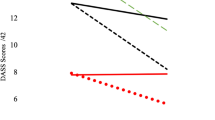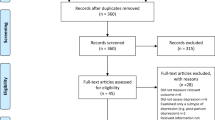Abstract
Catechol-O-methyltransferase (COMT) gene polymorphisms and haplotypes have been associated with both experimental and clinical pain phenotypes. In this prospective study, we investigated the association of three common polymorphisms with experimentally induced pressure pain, postoperative pain and amount of self-administered morphine in 973 patients who underwent scheduled total hysterectomy. DNA extracted from peripheral blood was genotyped for three COMT polymorphisms by Taqman assay or a PCR-based method. In the overall sample, rs4633 and rs4680 were significantly associated with morphine use, whereas rs4818 was associated with time-averaged pain scores. Statistically significant associations were found between COMT rs4633 and rs4680 genotypes and the amount of morphine self-administered through a patient-controlled analgesia pump. For rs4818, the only statistically significant association was with time-averaged pain scores. Haplotype analysis showed statistically significant association of the low pain sensitivity haplotype with time-averaged pain scores; and average pain sensitivity haplotype with total morphine and weight-adjusted morphine.
This is a preview of subscription content, access via your institution
Access options
Subscribe to this journal
Receive 6 print issues and online access
$259.00 per year
only $43.17 per issue
Buy this article
- Purchase on Springer Link
- Instant access to full article PDF
Prices may be subject to local taxes which are calculated during checkout
Similar content being viewed by others
References
Campbell CM, Edwards RR, Fillingim RB . Ethnic differences in responses to multiple experimental pain stimuli. Pain 2005; 113: 20–26.
Hastie BA, Riley JL, Fillingim RB . Ethnic differences and responses to pain in healthy young adults. Pain Med 2005; 6: 61–71.
Rahim-Williams B, Riley JL 3rd, Williams AK, Fillingim RB . A quantitative review of ethnic group differences in experimental pain response: do biology, psychology and culture matter? Pain Med 2012; 13: 522–540.
Farrell M, Gibson S . Age interacts with stimulus frequency in the temporal summation of pain. Pain Med 2007; 8: 514–520.
Lautenbacher S, Kunz M, Strate P, Nielsen J, Arendt-Nielsen L . Age effects on pain thresholds, temporal summation and spatial summation of heat and pressure pain. Pain 2005; 115: 410–418.
Yezierski RP . The effects of age on pain sensitivity: preclinical studies. Pain Med 2012; 13: S27–S36.
Racine M, Tousignant-Laflamme Y, Kloda LA, Dion D, Dupuis G, Choiniere M . A systematic literature review of 10 years of research on sex/gender and experimental pain perception - part 1: are there really differences between women and men? Pain 2012; 153: 602–618.
Bartley EJ, Fillingim RB . Sex differences in pain: a brief review of clinical and experimental findings. Br J Anaesth 2013; 111: 52–58.
Etherton J, Lawson M, Graham R . Individual and gender differences in subjective and objective indices of pain: gender, fear of pain, pain catastrophizing and cardiovascular reactivity. Appl Psychophysiol Biofeedback 2014; 39: 89–97.
Schlereth T, Heiland A, Breimhorst M, Fechir M, Kern U, Magerl W et al. Association between pain, central sensitization and anxiety in postherpetic neuralgia. Eur J Pain 2015; 19: 193–201.
Hampton AJ, Hadjistavropoulos T, Gagnon MM, Williams J, Clark D . The effects of emotion regulation strategies on the pain experience: a structured laboratory investigation. Pain 2015; 156: 8685–8879.
Tan EC, Lim Y, Teo YY, Goh R, Law HY, Sia AT . Ethnic differences in pain perception and patient-controlled analgesia usage for postoperative pain. J Pain 2008; 9: 849–855.
Nielsen CS, Stubhaug A, Price DD, Vassend O, Czajkowski N, Harris JR . Individual differences in pain sensitivity: genetic and environmental contributions. Pain 2007; 136: 21–29.
Mogil JS, Wilson SG, Bon K, Lee SE, Chung K, Raber P et al. Heritability of nociception I: responses of 11 inbred mouse strains on 12 measures of nociception. Pain 1999; 80: 67–82.
Norbury TA, MacGregor AJ, Urwin J, Spector TD, McMahon SB . Heritability of responses to painful stimuli in women: a classical twin study. Brain 2007; 130: 3041–3049.
Nackley AG, Tan KS, Fecho K, Flood P, Diatchenko L, Maixner W . Catechol-O-methyltransferase inhibition increases pain sensitivity through activation of both beta2- and beta3-adrenergic receptors. Pain 2007; 128: 199–208.
Papaleo F, Crawley JN, Song J, Lipska BK, Pickel J, Weinberger DR et al. Genetic dissection of the role of catechol-O-methyltransferase in cognition and stress reactivity in mice. J Neurosci 2008; 28: 8709–8723.
Kambur O, Talka R, Ansah OB, Kontinen VK, Pertovaara A, Kalso E et al. Inhibitors of catechol-O-methyltransferase sensitize mice to pain. Br J Pharmacol 2010; 161: 1553–1565.
Lachman HM, Papolos DF, Saito T, Yu YM, Szumlanski CL, Weinshilboum RM . Human catechol-O-methyltransferase pharmacogenetics: description of a functional polymorphism and its potential application to neuropsychiatric disorders. Pharmacogenetics 1996; 6: 243–250.
Zubieta JK, Heitzeg MM, Smith YR, Bueller JA, Xu K, Xu Y et al. COMT val158met genotype affects mu-opioid neurotransmitter responses to a pain stressor. Science 2003; 299: 1240–1243.
Loggia ML, Jensen K, Gollub RL, Wasan AD, Edwards RR, Kong J . The catechol-O-methyltransferase (COMT) val158met polymorphism affects brain responses to repeated painful stimuli. PLoS One 2011; 6: e27764.
Diatchenko L, Nackley AG, Slade GD, Bhalang K, Belfer I, Max MB et al. Catechol-O-methyltransferase gene polymorphisms are associated with multiple pain-evoking stimuli. Pain 2006; 125: 216–224.
Jensen KB, Lonsdorf TB, Schalling M, Kosek E, Ingvar M . Increased sensitivity to thermal pain following a single opiate dose is influenced by the COMT val(158)met polymorphism. PLoS One 2009; 4: e6016.
Andersen S, Skorpen F . Variation in the COMT gene: implications for pain perception and pain treatment. Pharmacogenomics 2009; 10: 669–684.
van Meurs JB, Uitterlinden AG, Stolk L, Kerkhof HJ, Hofman A, Pols HA et al. A functional polymorphism in the catechol-O-methyltransferase gene is associated with osteoarthritis-related pain. Arthritis Rheum 2009; 60: 628–629.
Candiotti KA, Yang Z, Buric D, Arheart K, Zhang Y, Rodriguez Y et al. Catechol-O-methyltransferase polymorphisms predict opioid consumption in postoperative pain. Anesth Analg 2014; 119: 1194–1200.
Henker RA, Lewis A, Dai F, Lariviere WR, Meng L, Gruen GS et al. The associations between OPRM 1 and COMT genotypes and postoperative pain, opioid uses opioid-induced sedation. Biol Res Nurs 2013; 15: 309–317.
Kambur O, Kaunisto MA, Tikkanen E, Leal SM, Ripatti S, Kalso EA . Effect of catechol-O-methyltransferase-gene (COMT) variants on experimental and acute postoperative pain in 1,000 women undergoing surgery for breast cancer. Anesthesiology 2013; 119: 1422–1433.
Kolesnikov Y, Gabovits B, Levin A, Veske A, Qin L, Dai F et al. Chronic pain after lower abdominal surgery: do catechol-O-methyltransferase/opioid receptor mu-1 polymorphisms contribute? Mol Pain 2013; 9: 19.
Sadhasivam S, Chidambaran V, Olbrecht VA, Esslinger HR, Zhang K, Zhang X et al. Genetics of pain perception, COMT and postoperative pain management in children. Pharmacogenomics 2014; 15: 277–284.
De Gregori M, Garbin G, De Gregori S, Minella CE, Bugada D, Lisa A et al. Genetic variability at COMT but not at OPRM1 and UGT2B7 loci modulates morphine analgesic response in acute postoperative pain. Eur J Clin Pharmacol 2013; 69: 1651–1658.
Sia AT, Lim Y, Lim EC, Ocampo CE, Lim WY, Cheong P et al. Influence of mu-opioid receptor variant on morphine use and self-rated pain following abdominal hysterectomy. J Pain 2013; 14: 1045–1052.
Diatchenko L, Slade GD, Nackley AG, Bhalang K, Sigurdsson A, Belfer I et al. Genetic basis for individual variations in pain perception and the development of a chronic pain condition. Hum Mol Genet 2005; 14: 135–143.
George SZ, Wallace MR, Wright TW, Moser MW, Greenfield WH 3rd, Sack BK et al. Evidence for a biopsychosocial influence on shoulder pain: pain catastrophizing and catechol-O-methyltransferase (COMT) diplotype predict clinical pain ratings. Pain 2008; 136: 53–61.
Fernandez-de-Las-Penas C, Ambite-Quesada S, Gil-Crujera A, Cigaran-Mendez M, Penacoba-Puente C . Catechol-O-methyltransferase Val158Met polymorphism influences anxiety, depression, and disability, but not pressure pain sensitivity, in women with fibromyalgia syndrome. J Pain 2012; 13: 1068–1074.
Fernandez-de-las-Penas C, Ambite-Quesada S, Ortega-Santiago R, Martinez-Perez A, Diaz HF, Martinez-Martin J et al. Catechol-O-methyltransferase Val158Met polymorphism is associated with pain and disability, but not widespread pressure pain sensitivity, in women with carpal Tunnel syndrome. Pain Physician 2013; 16: E591–E600.
Lee PJ, Delaney P, Keogh J, Sleeman D, Shorten GD . Catecholamine-O-methyltransferase polymorphisms are associated with postoperative pain intensity. Clin J Pain 2011; 27: 93–101.
Ahlers SJ, Elens LL, van Gulik L, van Schaik RH, van Dongen EP, Bruins P et al. The Val158Met polymorphism of the COMT gene is associated with increased pain sensitivity in morphine-treated patients undergoing a painful procedure after cardiac surgery. Br J Clin Pharmacol 2013; 75: 1506–1515.
Rut M, Machoy-Mokrzynska A, Reclawowicz D, Sloniewski P, Kurzawski M, Drozdzik M et al. Influence of variation in the catechol-O-methyltransferase gene on the clinical outcome after lumbar spine surgery for one-level symptomatic disc disease: a report on 176 cases. Acta Neurochir 2014; 156: 245–252.
Kolesnikov Y, Gabovits B, Levin A, Voiko E, Veske A . Combined catechol-O-methyltransferase and mu-opioid receptor gene polymorphisms affect morphine postoperative analgesia and central side effects. Anesth Analg 2011; 112: 448–453.
Rakvag TT, Klepstad P, Baar C, Kvam TM, Dale O, Kaasa S et al. The Val158Met polymorphism of the human catechol-O-methyltransferase (COMT) gene may influence morphine requirements in cancer pain patients. Pain 2005; 116: 73–78.
Rakvag TT, Ross JR, Sato H, Skorpen F, Kaasa S, Klepstad P . Genetic variation in the catechol-O-methyltransferase (COMT) gene and morphine requirements in cancer patients with pain. Mol Pain 2008; 4: 64.
Reyes-Gibby CC, Shete S, Rakvag T, Bhat SV, Skorpen F, Bruera E et al. Exploring joint effects of genes and the clinical efficacy of morphine for cancer pain: OPRM1 and COMT gene. Pain 2007; 130: 25–30.
Klepstad P, Fladvad T, Skorpen F, Bjordal K, Caraceni A, Dale O et al. Influence from genetic variability on opioid use for cancer pain: a European genetic association study of 2294 cancer pain patients. Pain 2011; 152: 1139–1145.
Domschke K, Deckert J, O'Donovan MC, Glatt SJ . Meta-analysis of COMT val158met in panic disorder: ethnic heterogeneity and gender specificity. Am J Med Genet B Neuropsychiatr Genet 2007; 144B: 667–673.
Fan JB, Zhang CS, Gu NF, Li XW, Sun WW, Wang HY et al. Catechol-O-methyltransferase gene Val/Met functional polymorphism and risk of schizophrenia: a large-scale association study plus meta-analysis. Biol Psychiatry 2005; 57: 139–144.
Glatt SJ, Faraone SV, Tsuang MT . Association between a functional catechol-O-methyltransferase gene polymorphism and schizophrenia: meta-analysis of case-control and family-based studies. Am J Psychiatry 2003; 160: 469–476.
ALFRED The ALlele FREquency Database http://alfred.med.yale.edu/alfred/index.asp.
Orrey DC, Bortsov AV, Hoskins JM, Shupp JW, Jones SW, Cicuto BJ et al. Catechol-O-methyltransferase genotype predicts pain severity in hospitalized burn patients. J Burn Care Res 2012; 33: 518–523.
Kalso E IV . Persistent post-surgery pain: research agenda for mechanisms, prevention and treatment. Br J Anaesth 2013; 111: 9–12.
Acknowledgements
This research is supported by grant no. KRAU158/2009, and grant nos NMRC/CPG/015/2005 and CG/RC001 from the National Medical Research Council, Ministry of Health, Republic of Singapore.
Author information
Authors and Affiliations
Corresponding author
Ethics declarations
Competing interests
The authors declare no conflict of interest.
Rights and permissions
About this article
Cite this article
Tan, EC., Lim, E., Ocampo, C. et al. Common variants of catechol-O-methyltransferase influence patient-controlled analgesia usage and postoperative pain in patients undergoing total hysterectomy. Pharmacogenomics J 16, 186–192 (2016). https://doi.org/10.1038/tpj.2015.33
Received:
Revised:
Accepted:
Published:
Issue Date:
DOI: https://doi.org/10.1038/tpj.2015.33



